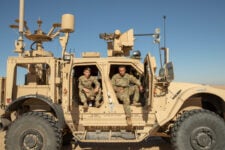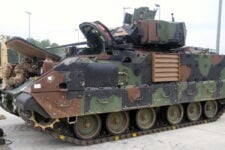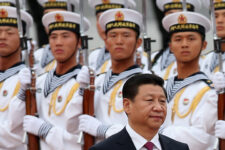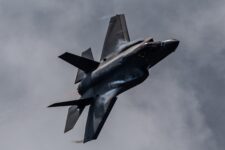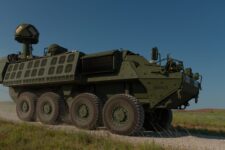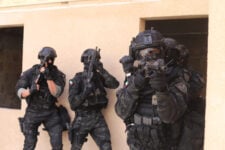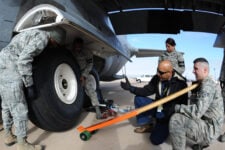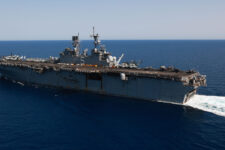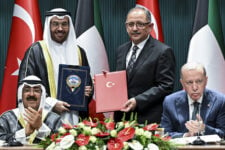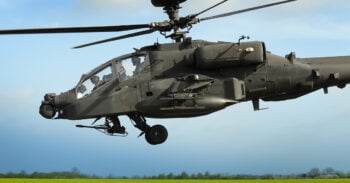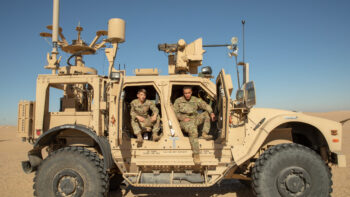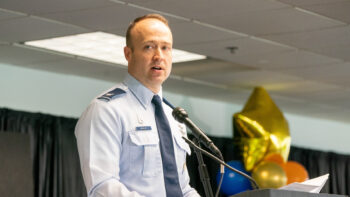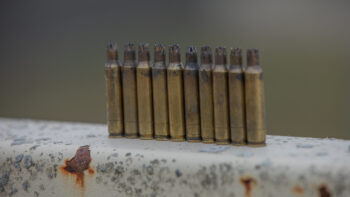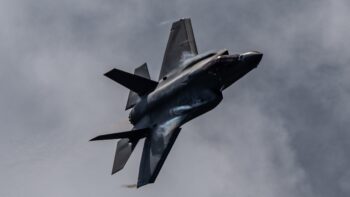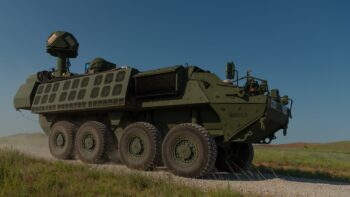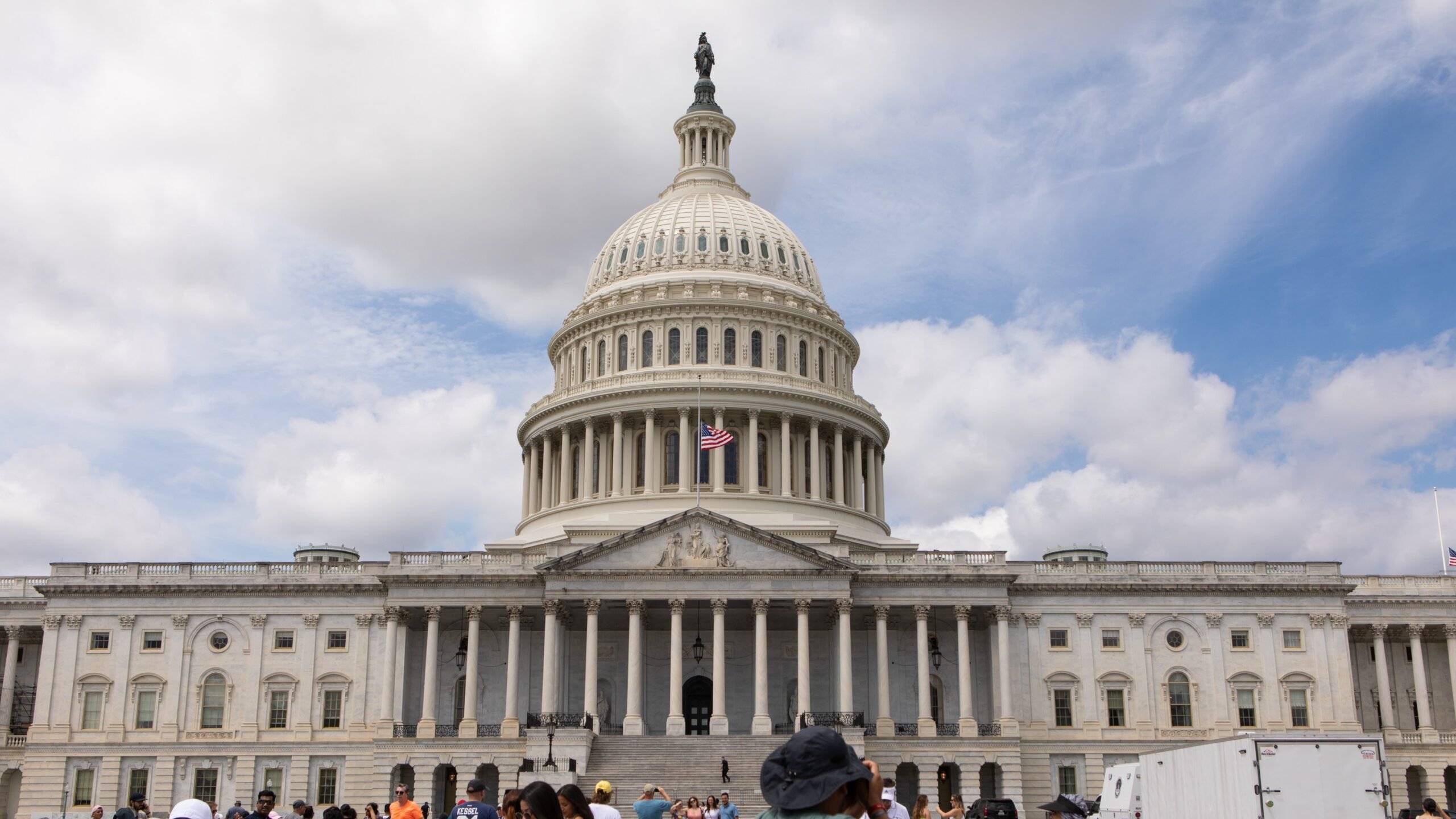
The US Capitol. (Photo by Anna Rose Layden/Getty Images)
WASHINGTON — The US Senate tonight confirmed Air Force Gen. CQ Brown as the next chairman of the Joint Chiefs of Staff, and is poised to approve two other top military officers to key posts, the first break in a logjam caused by a blanket hold on promotions placed by Alabama Republican Sen. Tommy Tuberville.
In a surprise twist in the months-long political saga, Senate Majority Leader Chuck Schumer, D-N.Y., announced today the legislative body would hold a vote to confirm Brown, alongside Army Gen. Randy George and Marine Corps Gen. Eric Smith to serve as leaders of their respective services.
Brown was the first of the three to receive votes, passing with a 83-11 vote. The timing for final votes on George and Smith were not clear, but both are expected to also pass with little opposition.
Schumer’s move follows an unprecedented blockade by Tuberville, who has used Senate rules to unilaterally stall hundreds of military officers’ nominations as a protest over a Pentagon policy that allows servicemembers to receive travel reimbursements and leave when seeking an abortion.
More than 300 promotions, which are traditionally bundled together in large groups and passed simultaneously, or “en bloc,” have been held in limbo as a result of Tuberville’s hold. Tuberville has long insisted that any nominations could still be advanced individually — as with the trio of upcoming votes — a time-consuming process that the Congressional Research Service in August estimated [PDF] would take some 89 days of Senate floor time.
After Tuberville indicated this morning that he would file for cloture on the nominations — ending debate and teeing them up for a vote that could be passed by a simple majority — Schumer himself filed for cloture and pushed for a vote on the nominees.
“We cannot allow Senator Tuberville to decide which of our brave service members get promoted and which languish. Democrats are taking action,” Schumer wrote on X, the social media platform previously known as Twitter.
Senior military leaders have roundly condemned the hold, with one Air Force general recently stating the Chinese are “popping” corks to celebrate the dysfunction. But Tuberville took to the Senate floor following the cloture vote to vow his hold would remain in place, citing a recent statement by the head of Army forces in the Pacific, Gen. Charles Flynn, who said “I don’t see any practical challenges that it’s creating in the region.”
“This hold is not affecting readiness. If Democrats want to complain, then they should look in the mirror,” Tuberville said. “To be clear, my hold is still in place… If the Pentagon lifts the policy, then I will lift my hold.”
The White House and Pentagon today praised Schumer’s move today to get votes on the trio of military leaders but warned that hundreds more are waiting in the wings.
“It’s good that they’re moving forward on these three, but obviously we should never have been in this position,” John Kirby, the National Security Council coordinator for strategic communications, told reporters today.
“This particular move, while good for those three officers and certainly good for two of the branches of the armed services and the Joint Staff… it doesn’t fix the problem or provide a path forward for the 316 other general and flag officers who are held up by this ridiculous hold,” he said.
A Defense official echoed Kirby’s sentiments in an email to Breaking Defense but pushed back against Tuberville’s assertion that his hold is not hindering the military’s ability to respond to a crisis.
“Senator Tuberville’s hold still impacts over 300 nominees and remains unnecessary at a critical moment for our national security,” the defense official added. “We want the Senate to approve all of our nominees, how the Senate decides to do that is up to them.”
Others On Hold
The Marine Corps was the first to have its top officer seat vacant in July when Gen. David Berger retired after 42 years in the service. Although Smith was nominated to take over that post, Tuberville’s hold meant he would stay in his current role as the assistant commandant while also becoming the acting commandant. (Smith previously explained why being in an “acting” position has real “ripple effects” for him and his subordinates.)
Then, in early August, the Army experienced a similar situation when its chief, Gen. James McConville, retired, and George remained as the vice-chief and took on the role of acting chief.
Although the Senate is expected to approve Brown, Smith and George, those moves create new leadership holes to plug. For example, when Brown takes over for Gen. Mark Milley, the Air Force will be without a chief, while the Army and Marine Corps’ vice chief seats remain without Senate confirmed leaders.
Meanwhile, the Navy’s top uniformed spot remains officially vacant and has since mid-August when Chief of Naval Operations Adm. Michael Gilday stepped aside and Vice Chief of Naval Operations Adm. Lisa Franchetti filled in as acting chief. President Joe Biden has also tapped Franchetti to helm the Navy, but she along with the Air Force’s next presumptive leader, Gen. David Allvin, have yet to be voted out of the Senate Armed Services Committee.
Beyond those senior-most posts, the other 300-plus officers will be stuck waiting for their own confirmation votes, with no end in sight to Tuberville’s hold.
Army leader dismisses House proposal for drone branch creation
“Operating and defending against the drone threat is something that will be experienced by, you know, all formations at multiple echelons,” said Army Undersecretary Gabe Camarillo.
